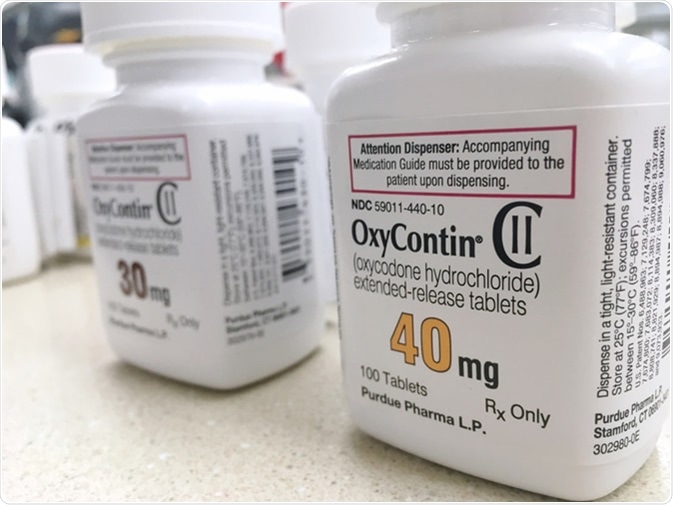Opioid-induced bowel dysfunction (OIBD) is a group of gastrointestinal symptoms that arise from the prolonged use of opioid analgesics. The treatment options available for it are limited in their effectiveness; however, newly emerging treatment options have a lot of potential.
Opioids and opioid-induced bowel dysfunction
Opioids are very effective at reducing acute and chronic pain, especially with conditions such as cancer and various autoimmune diseases. They can reduce the pain of a patient by mimicking the body’s response to endorphins, which is achieved by activating opioid receptors in the central and peripheral nervous systems. There are many different opioids which can be classified depending on their interaction with opioid receptors. Opioids are classified as strong agonists (e.g. morphine), mild to moderate agonists (e.g. codeine) and opioids with mixed receptor actions (e.g. nalbuphine).
The prolonged use of opioids can lead to adverse side-effects such as nausea, headaches, confusion, and gastrointestinal (GI)-related symptoms, which are referred to as opioid-induced bowel dysfunction (OIBD). The GI-related symptoms of OIBD include gastroesophageal reflux, vomiting, bloating, abdominal pain, anorexia, and constipation.
Opioids are highly addictive, and patients often must be weaned off the drugs once the pain is no longer an issue.

OxyContin bottles. Image Credit: PureRadiancePhoto / Shutterstock
Prevalence of opioid-induced bowel dysfunction
Over the past few decades, Europe and the USA have had the highest use of opioids to treat pain, as 90% of American patients treated at specialist pain centers receive opioids.
A study has shown that the prevalence of adverse effects in patients taking opioids for chronic pain was extremely high, with approximately 88% experiencing constipation, 58% experiencing chronic abdominal pain, and 27% experiencing nausea.
Mayo Clinic Minute: Opioids can cause gut problems
Pathophysiology of opioid-induced bowel dysfunction
OIBD develops when opioids bind to opioid receptors of the enteric nervous system, which disturbs normal GI function.
There are 3 types of opioid receptors involved in controlling normal GI function: μ-, δ-, and κ-opioid receptors. δ- and κ-opioid receptors are expressed in the stomach and proximal colon, whereas μ-opioid receptors are expressed throughout the GI tract and in certain neurons and immune cells.
Opioids activate μ-opioid receptors triggering an intracellular signaling pathway, which leads to the inhibition of adenylate cyclase, causing a reduction in the conversion of adenosine triphosphate to cyclic adenosine monophosphate (cAMP). This decrease in cAMP production affects the regulation of certain cellular functions, which contributes to the development of OIBD symptoms. Opioids also cause membrane hyperpolarization (by activating K+ channels) and decreased neurotransmitter release (by inhibiting Ca2+ channels), both of which contribute to OIBD.
Activation of μ-opioid receptors in the GI tracts by opioids causes the disturbance of three major GI functions, which are:
- Motility
- Coordination of sphincter function
- Coordination of secretion
Motility is compromised due to enhanced non-propulsive rhythmic contraction throughout the GI tract. Sphincter function is compromised by inhibition of sphincter muscle relaxation and decreased sphincter sensitivity. Gut secretion if compromised because of reduced cAMP and vasoactive intestinal peptide production.
How is opioid-induced bowel dysfunction treated?
Typical treatments for OIBD are based on certain combinations of pharmacological and non-pharmacological approaches, which includes the use of laxative coupled with an increase of fibers in the diet. Exercise is also suggested to help with the symptoms of OIBD.
The combination of laxatives with dietary and lifestyles changes for treatment of OIBD symptoms is often ineffective, as it does not combat the underlying issue that has originally caused the symptoms.
Opioid-induced constipation (OIC) is a symptom that falls under OIBD. A chloride channel activator (lubiprostone) and a serotonin agonist (prucalopride) affect the μ-opioid receptors and show some promise in treating OIC, but are not recommended at this time.
Further Reading
Last Updated: Apr 16, 2019